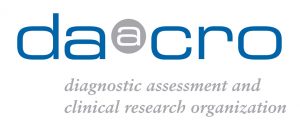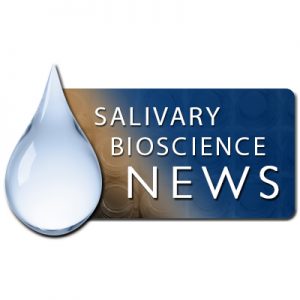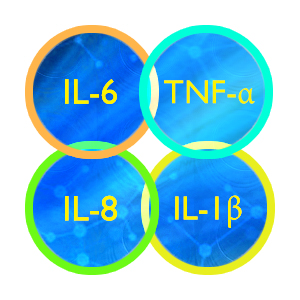*Note: Salimetrics provides this information for research use only (RUO). Information is not provided to promote off-label use of medical devices. Please consult the full-text article.
Meet daacro, a unique European Salivary Bioscience Consultancy & CRO
Meetings are always a good option to meet and exchange. During the next months, you will find daacro at the following meetings and we would enjoy meeting you at one of these occasions. Let us know if you wish to organize your individual meeting with daacro at: March 02 – 03, 2017 2nd OTC Toolbox […]
Salivary uric acid associated with BMI, gender, and developmental differences
Association between body mass index and salivary uric acid among Mexican-origin infants, youth and adults: Gender and developmental differences. Author: Martínez AD, et al (2016), Dev Psychobiol. Uric acid (UA) is the end product of the metabolic breakdown of purine nucleotides. Recent studies have measured UA in saliva in relation to obesity and chronic disease […]
Couples low in dyadic coping display increased immune reactivity in response to stress
Dyadic Coping and Salivary Interleukin-6 Responses to Interpersonal Stress Author: Reed RG, et al (2016), Journal of Family Psychology. Dysregulated immune responses to stress are a potential pathway linking close relationship processes to health, and couples’ abilities to cope with stress together (dyadic coping) likely impact such immune responses. Most stress research has focused on […]
Salivary Diagnostics from Salimetrics Support daacro, a German CRO, in neuropattern™ Customization
(January 26, 2017) daacro received further EU-funding to participate in the Eurostars-project named “ActiveNutraLife – A new complementary medicine approach for the management of chemotherapy side effects,” from November 2016 until October 2019. This project aims at designing and testing in clinical studies a new complementary medicine approach to speed up the recovery of haematological [...]Call for Papers: Psychosomatic Medicine Special Issue
The Neuroscience of Pain: Biobehavioral, Developmental, and Psychosocial Mechanisms and Targets for Intervention Guest Editors: Lauren Atlas, PhD, and Mustafa al’Absi, PhD The central nervous system plays a critical role in the association between psychological factors and pain. The neural circuits that are involved in these bi-directional relationships include several systems that influence peripheral processes […]
Individual responses to psychosocial stress are influenced by a neural mechanism
Prefrontal Cortex Activity Is Associated with Biobehavioral Components of the Stress Response Author: Wheelock MD, et al (2016), Frontiers in Human Neuroscience. Contemporary theory suggests that prefrontal cortex (PFC) function is associated with individual variability in the psychobiology of the stress response. Advancing our understanding of this complex biobehavioral pathway has potential to provide insight […]
Post-competition salivary testosterone levels higher in winners
Effects of competition outcome on testosterone concentrations in humans: An updated meta-analysis Author: Geniole SN, et al (2016), Hormones and Behavior. A contribution to a special issue on Hormones and Human Competition. Since Archer’s (2006) influential meta-analysis, there has been a major increase in the number of studies investigating the effect of competition outcome on […]
The stress response to perceived discrimination as indicated by salivary measures
Perceived Discrimination, Racial Identity, and Multisystem Stress Response to Social Evaluative Threat among African American Men and Women Author: Lucas T, et al (2016), Psychosomatic Medicine. OBJECTIVES: Understanding individual differences in the psychobiology of the stress response is critical to grasping how psychosocial factors contribute to racial and ethnic health disparities. However, the ways in […]
Chronic caregiver-related stress linked to diurnal salivary alpha-amylase rhythms
Diurnal Salivary Alpha-Amylase Dynamics Among Dementia Family Caregivers Author: Liu Y, et al (2016), Health Psychology. Objective: The study examined diurnal regulation of salivary alpha-amylase (sAA) in association with daily stressors, adult day services (ADS) use, and other caregiving characteristics. Method: A sample of 165 family caregivers of individuals with dementia (IWD) completed an 8-day […]
Determining the appropriate statistical approach for effective analysis of hormone ratios
How to use and interpret hormone ratios Author: Sollberger S, et al (2016), Psychoneuroendocrinology. Hormone ratios have become increasingly popular throughout the neuroendocrine literature since they offer a straightforward way to simultaneously analyze the effects of two interdependent hormones. However, the analysis of ratios is associated with statistical and interpretational concerns which have not been […]
New Salimetrics Salivary Cytokine Panel Advances Research with One, Small Saliva Sample.
New Salimetrics Salivary Cytokine Panel Advances Research with One, Small Saliva Sample. ((November 10, 2016) Salimetrics, the salivary bioscience company, today announced their latest offering in cutting edge salivary research with Salimetrics’ Salivary Cytokine Panel. The new cytokine panel measures IL-1 beta, IL-6, IL-8 & TNF-Alpha concentrations simultaneously using a single, 100 µl saliva sample [...]Salivary uric acid modulates stress-related hippocampal activity
The hippocampal response to psychosocial stress varies with salivary uric acid level Author: Goodman AM, et al (2016), Neuroscience. Uric acid is a naturally occurring, endogenous compound that impacts mental health. In particular, uric acid levels are associated with emotion-related psychopathology (e.g., anxiety and depression). Therefore, understanding uric acid’s impact on the brain would provide […]
Study demonstrates combined effects of salivary cortisol & DHEA-S in predicting depressive symptoms
Concurrent and prospective associations between HPA axis activity and depression symptoms in newlywed women Author: Ge F, et al (2016), Psychoneuroendocrinology. We investigated the extent to which individual differences in activity of the hypothalamic pituitary adrenal axis (HPA) are associated with depressive symptoms among newlywed couples. Participants were 218 couples (M age 28.4 years; 94% […]
Salimetrics Supports Institute for Interdisciplinary Salivary Bioscience Research (IISBR) Event
Salimetrics’ CEO, Hans Schroeder, recently attended a special presentation by Dr. Douglas Granger to celebrate the launch of the new Institute for Interdisciplinary Salivary Bioscience Research (IISBR) at the University of California, Irvine (UCI). The event was attended by Orange County and UCI community members who came to hear about the history and recent advances […]
Cortisol reactivity attenuates the association between PDE and behavioral problems
Prenatal Drug Exposure and Adolescent Cortisol Reactivity: Association with Behavioral Concerns. Author: Buckingham-Howes S, et al (2016), J Dev Behav Pediatr OBJECTIVE: To examine stress reactivity in a sample of adolescents with prenatal drug exposure (PDE) by examining the consequences of PDE on stress-related adrenocortical reactivity, behavioral problems, and drug experimentation during adolescence. CONCLUSION: Findings […]
 Contact: Salimetrics (USA)
Contact: Salimetrics (USA)



